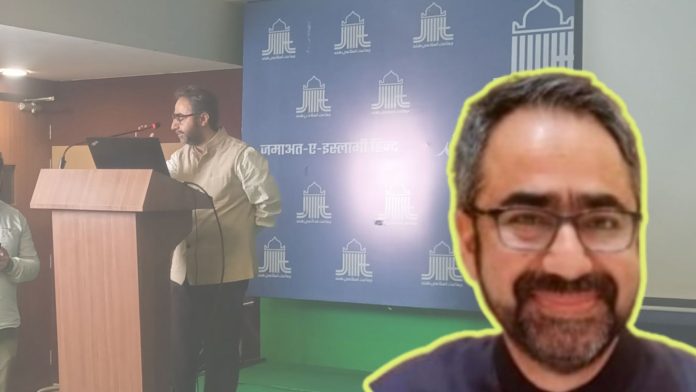New Delhi: Advocate-on-Record at the Supreme Court, Fuzail Ayyubi, has warned that the Supreme Court’s interim ruling on the Waqf (Amendment) Act 2024 carries far-reaching consequences for Waqf properties across India. Speaking at a program organized at the Jamaat-e-Islami Hind headquarters, he said the temporary nature of the judgment should not mask its immediate and serious effects.
The Supreme Court issued the interim order on September 15, after reserving judgment in May. The government had earlier assured the bench that no new appointments to Waqf Boards or Councils would be made until the case concluded and that Waqf property character would remain unchanged. Yet, the court’s directions introduced new challenges for mosques, graveyards, and long-standing religious institutions.
Ayyubi highlighted the court’s rejection of the concept of Waqf by user, which recognized properties as Waqf through continuous community use even without documents. This principle, he noted, had been acknowledged in earlier judgments, including the Babri Masjid case. He cautioned that ignoring community traditions undermines institutions created and sustained through centuries of practice.
The judgment also upheld the wide powers given to collectors, allowing them to declare properties as government-owned before an inquiry is completed. Ayyubi described this as paving the way for a “collector raj” over sacred endowments, curbing the autonomy that religious institutions are entitled to under constitutional guarantees.
Perhaps the most pressing concern is the court’s requirement that all Waqf properties be re-registered within six months. Properties not re-registered will lose legal recognition as Waqf. According to Ayyubi, this could place thousands of mosques, shrines, and graveyards at risk, especially older ones without formal records. Local trustees, often with limited resources, will face the burden of navigating the new procedures.
Other elements of the ruling included excluding properties under the Archaeological Survey of India and those in Scheduled Tribe regions from being treated as Waqf. The court argued that this protects monuments and tribal rights. However, Ayyubi noted that blanket exclusions ignore specific contexts, such as Muslim-majority tribal regions like Lakshadweep, where Waqf properties are central to community life.
The ruling also opened the door for non-Muslims to be included in Waqf Boards and the Central Waqf Council, though in limited numbers. Ayyubi stressed that even a single such appointment violates Articles 25 and 26, which protect the right of religious communities to manage their affairs. On the issue of appointing Muslim Chief Executive Officers for Waqf Boards, the court left it as a preference rather than a legal requirement, which Ayyubi viewed as weakening proper administration of Shia and Sunni endowments.
While the court justified many provisions by citing misuse of Waqf laws, Ayyubi argued it is unfair to penalize the entire institution for individual cases. He emphasized that the interim order, though not final, reflects a judicial approach that may influence the final outcome. He urged the community to respond with strong legal arguments while also ensuring compliance with the new requirements.
“This is only the beginning of a larger legal battle,” Ayyubi said. “We must be vigilant, prepared, and united to safeguard our heritage and rights.”




